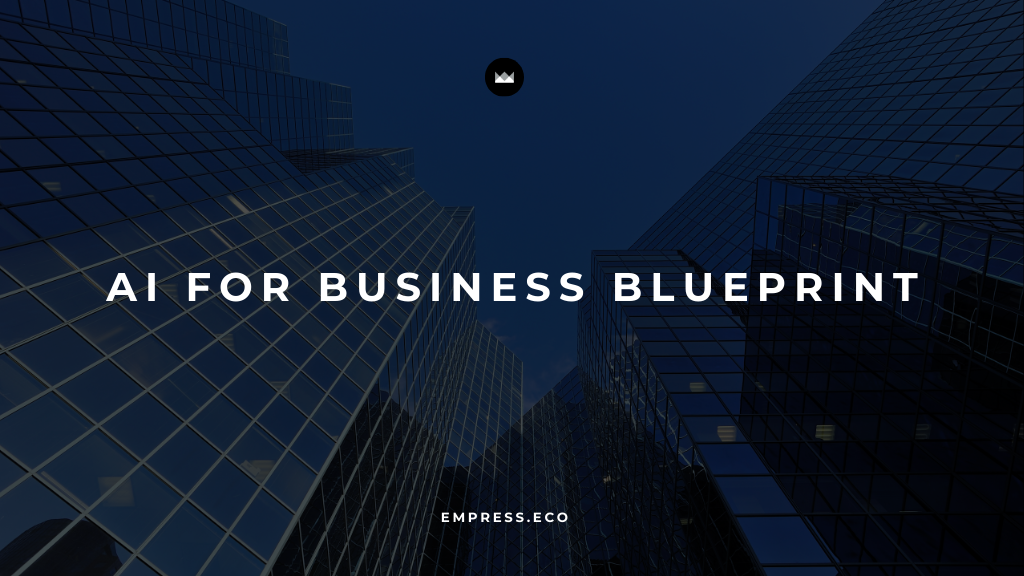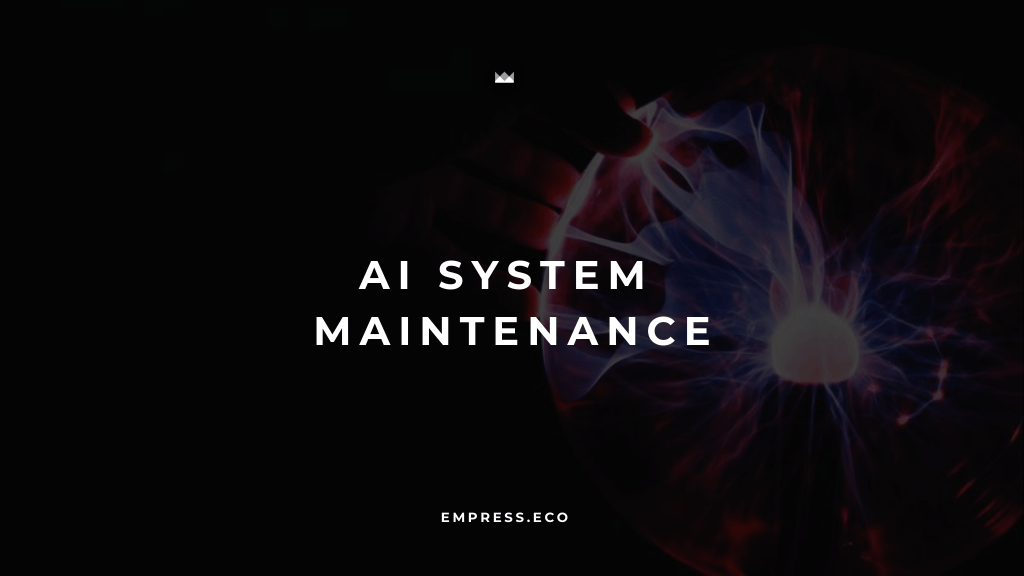Artificial Intelligence (AI) is changing the game for businesses across the world, promising breakthroughs in everything from customer service to operational efficiency. But there’s a catch: implementing AI isn’t as simple as buying new software or setting up a chatbot. Real success with AI takes strategy, clear goals, and an actionable roadmap. That’s where the EMPRESS System comes in—a practical, step-by-step framework to help you leverage AI’s potential at every level of your business.
Let’s dive into the EMPRESS System’s six phases—Explore, Manage, Produce, Report, Support, and Service—and see how each phase can lead you to a thriving AI-powered future.
Explore: Spot Your Biggest AI Opportunities
Getting AI right starts with knowing where it will actually help. So, before you make any investments, pause and explore your business landscape.
Identify Your Pain Points
Start by looking at your current challenges. Is your team bogged down with repetitive tasks? Are you spending hours digging for customer insights? Pinpointing these areas will help you understand where AI can deliver the most impact.
Determine Data Readiness
AI needs good data to work effectively, so assess your data first. Ask yourself: Do I have the data I need, and is it clean and well-organized? If you’re missing data, or if it’s not accessible, you’ll want to address these gaps now to avoid headaches down the line.
Find Practical Use Cases
Once you understand your data and needs, get specific. Maybe you want AI to help reduce customer service response times or optimize inventory levels. Choose a use case that can make an immediate difference and is straightforward to test. This way, you’ll set yourself up for early wins that boost confidence in the journey ahead.
Manage: Lay Out Your AI Strategy and Roadmap
With clear goals and use cases in mind, it’s time to manage the process. Building a successful AI strategy means setting a roadmap, defining responsibilities, and making sure you’re compliant.
Set Real, Measurable Goals
What exactly do you want to achieve with AI? Clear goals help everyone stay focused. For example, if you’re automating customer service, you might aim for a 20% reduction in response time.
Create a Roadmap
Break your AI journey into manageable steps. Start small with a pilot project, like testing an AI tool to sort customer emails. From there, expand gradually to avoid disruption and learn as you go. A phased approach helps you build on wins and adjust when needed.
Cover Compliance and Ethics
AI and data privacy go hand-in-hand. Make sure you’re up to speed on regulations like GDPR or HIPAA. This might mean setting up security measures or establishing clear data usage policies. Staying compliant isn’t just the law; it’s also a key trust builder with your customers.
Plan for Risks
AI isn’t perfect. Algorithms can be biased, data may be incomplete, and technical glitches happen. Create a risk management plan to handle potential issues. For instance, if you’re using AI in hiring, set up regular reviews to keep biases in check.
Produce: Build and Implement Your AI Solutions
This is where the magic happens. The Produce phase is all about turning your ideas into reality by building and deploying your AI tools.
Choose Your Tools
Find the right tools to match your goals. If customer service is your focus, AI platforms like Dialogflow or Zendesk AI are great options. For predictive insights, look at Google AutoML or DataRobot. The right tools make AI accessible and manageable.
Structure Your Data
Good AI relies on good data. Make sure your data is well-organized and ready for analysis. If you’re focusing on inventory predictions, gather data on sales, seasons, and purchase patterns to build a reliable foundation.
Develop, Test, Refine
Start small, and treat your first project as a pilot. Say you’re testing an AI model for inventory. Begin with a specific product line to refine the model without major risks. As you see results, tweak and expand.
Scale It Up
Once your pilot succeeds, it’s time to go bigger. Gradually roll out your AI solutions across departments or processes. Scaling ensures you get the most from AI without disrupting your existing operations.
Report: Track and Measure AI’s Impact
Great AI isn’t just about implementation; it’s about results. The Report phase centers on measuring AI’s impact so you can see what’s working and adjust what’s not.
Set Clear Metrics
Define what success looks like for each project. For a customer service AI, you might measure improvements in response times or satisfaction scores. KPIs help you see AI’s tangible impact.
Analyze the Data
Regularly review AI’s performance to see how well it’s achieving your goals. If you’re using AI for customer insights, for example, look at how predictive accuracy is translating into higher conversion rates or better customer retention.
Focus on Continuous Improvement
AI is a journey, not a one-time setup. Use what you learn to refine your models, adjust your strategy, or explore new use cases. This feedback loop keeps AI relevant and impactful.
Be Transparent
Transparency matters. Share AI’s results with your team and stakeholders, emphasizing how AI is contributing to growth. This builds buy-in and helps everyone see AI’s value.
Support: Equip Your Team and Infrastructure
AI is only as effective as the people and systems behind it. In the Support phase, focus on training your team and ensuring your infrastructure is ready.
Upskill Your Team
Invest in training to get everyone comfortable with AI. If you’re using a new CRM with AI capabilities, train your sales and support teams to use it effectively. Building skills now will pay dividends as AI becomes more integral.
Create an AI-Ready Culture
AI thrives in an environment that’s open to innovation and experimentation. Share success stories, encourage feedback, and emphasize that AI isn’t replacing anyone; it’s here to make everyone’s job easier.
Ensure Your Infrastructure Can Handle It
AI demands robust tech. Make sure your systems can handle data storage, processing, and security needs. If you’re unsure, consider scalable options like AWS or Google Cloud.
Make Change Management a Priority
AI can shake things up in terms of workflows and roles. Support your team through these changes with resources, Q&A sessions, and open communication to help them adapt smoothly.
Service: Optimize and Scale for Long-Term Value
The Service phase focuses on the long-term. This is where you keep refining and scaling AI to drive continuous value.
Monitor AI Performance
AI requires regular monitoring to keep up with changes. Set up dashboards or automated alerts to track AI’s performance, making sure it stays aligned with your goals.
Adapt and Expand
As your business grows, so should your AI capabilities. Look for new use cases and expand AI into other departments. For example, if AI has helped streamline inventory, consider applying it to pricing or demand forecasting.
Measure Customer Impact
AI is only as valuable as the difference it makes for your customers. Gather customer feedback to understand how AI improvements impact their experience, and use these insights to refine your approach.
Embrace Sustainable AI
AI can be power-hungry, so take steps toward sustainability. Consider energy-efficient algorithms or cloud services with renewable energy commitments. This not only helps the planet but also strengthens your brand.
Conclusion: Start Your AI Journey with Confidence
Implementing AI doesn’t have to be overwhelming. By following the EMPRESS System, you can break it down into clear, manageable steps that drive real, measurable value. Each phase—from Explore to Service—builds on the last, creating a strong foundation for lasting AI success.
Ready to unlock AI’s potential? Take the first step by exploring where AI could make a difference in your business. EMPRESS is here to guide you through each stage of this journey.
Contact us today to learn how we can help you build an AI strategy that’s tailored to your goals. Let’s shape the future of your business, together.



